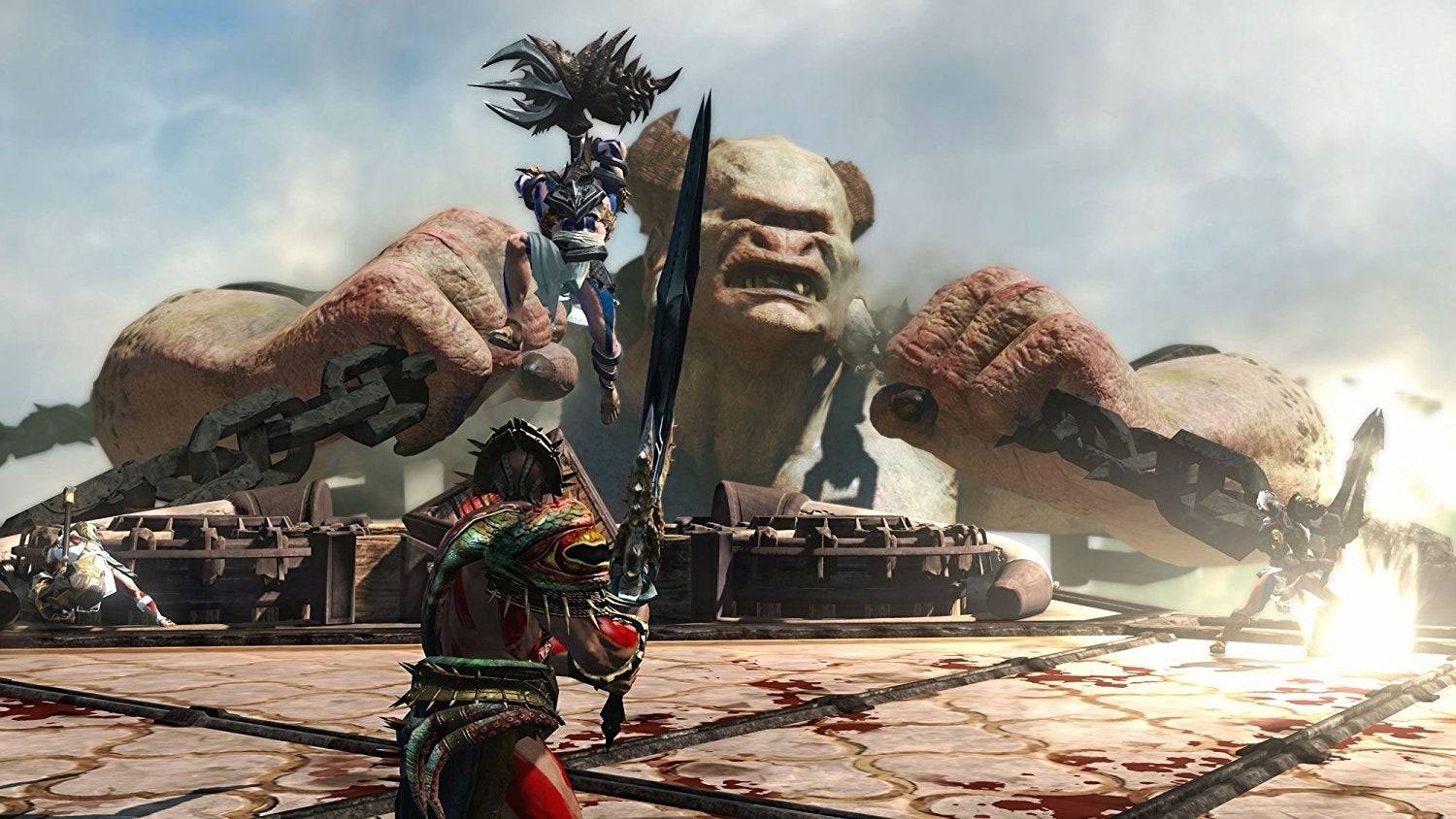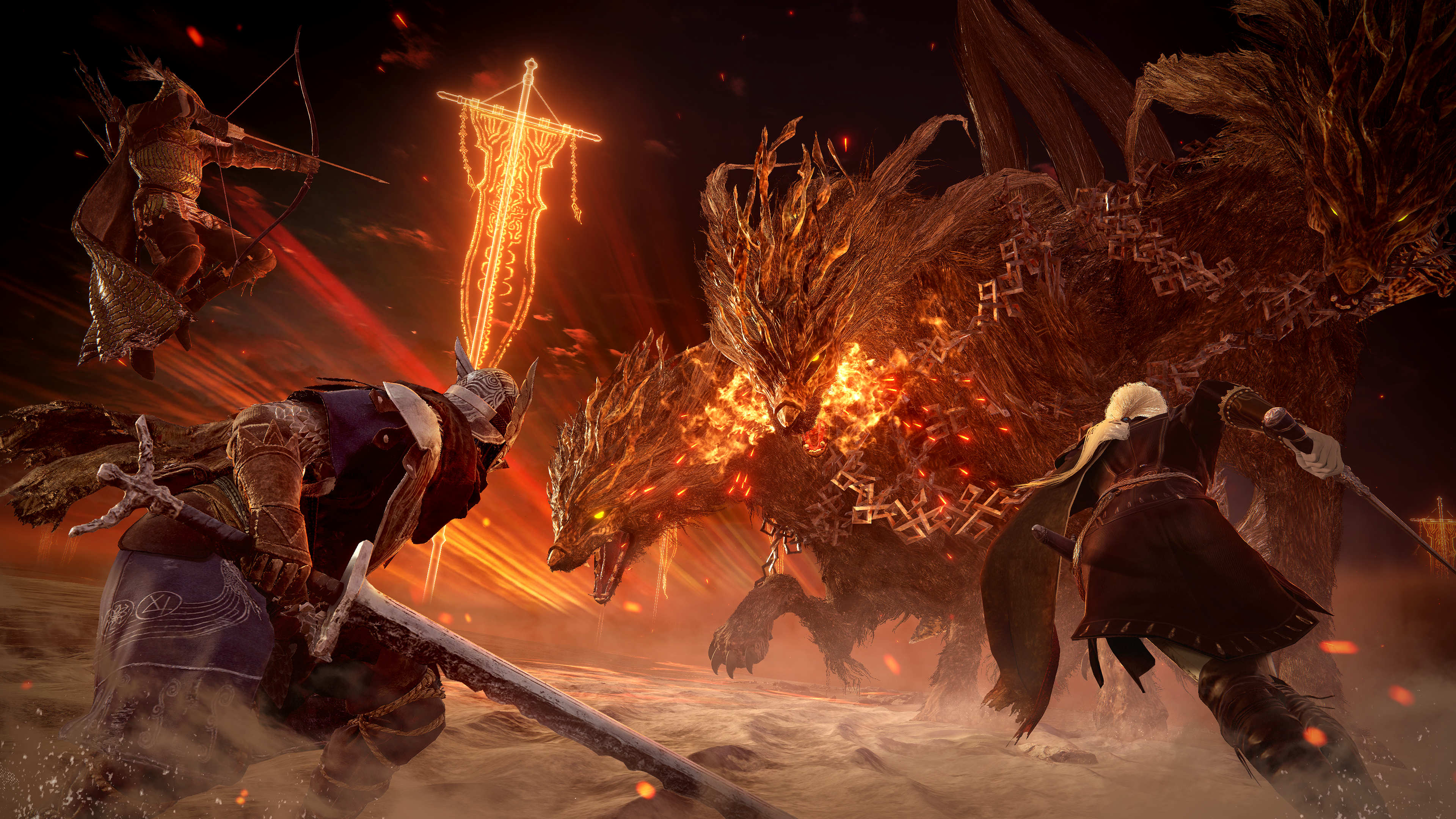This past weekend marked the initial network test phase for Elden Ring Nightreign, the eagerly awaited standalone multiplayer game derived from FromSoftware's acclaimed masterpiece. Unlike last year's Shadow of the Erdtree DLC, Nightreign diverges significantly from its predecessor, shifting away from the open-world exploration that defined Elden Ring to embrace a more focused survival format. Here, teams of three players parachute into maps that progressively shrink, battling waves of enemies and increasingly formidable bosses. This design choice clearly echoes the influence of the wildly popular Fortnite, which has captivated over 200 million players this month alone.
However, Nightreign draws even more striking parallels with a less celebrated and often criticized title: 2013's God of War: Ascension. And this comparison is far from negative.

The "Trial of the Gods" mode in Ascension is a cooperative PvE experience that mirrors Elden Ring Nightreign in many ways. As players navigate the Prison of the Damned in the single-player campaign, they encounter an NPC who prematurely celebrates their rescue, only to be crushed by the level's boss. In multiplayer mode, this same NPC becomes the player character, transported to Olympus just before their demise. Players then pledge allegiance to one of four gods—Zeus, Poseidon, Hades, or Aries—each granting unique weapons, armor, and magical abilities. These tools are used across five multiplayer modes, with "Trial of the Gods" being a cooperative PvE mode strikingly similar to Nightreign.
Gameplay previews of Nightreign from notable "Soulsborne" YouTubers like VaatiVidya and Iron Pineapple, along with IGN's coverage, have highlighted the game's similarities to live service titles like Fortnite. Nightreign incorporates randomized loot, resource management, and environmental hazards that challenge players by damaging their health and restricting their movement. The game even nods to Fortnite's iconic skydiving entry, with players being transported by spirit birds to their chosen landing spots.

The player feedback from Nightreign's network test echoes the reactions to Ascension's "Trial of the Gods." Participants describe their experiences as a thrilling race against time, contrasting sharply with the more relaxed pace of the original Elden Ring. Nightreign compels players to rely on instinct, accelerating the gameplay and limiting resources, which, as VaatiVidya noted, is "made in the name of speed and efficiency." To compensate for the absence of Torrent, players can now harness their inner spirit horse, enabling faster running and higher jumping.
Ascension's multiplayer mode similarly adjusted its single-player framework for a more dynamic pace, employing techniques akin to those in Nightreign. It enhanced player movement with increased run speed, extended jumps, automated parkour, and a grapple attack for pulling objects—mechanics also seen in Nightreign's Wylder character. These enhancements are crucial, as the combat, while not overly challenging in isolation, becomes intense in "Trial of the Gods" due to the sheer number of enemies, pushing players to move swiftly and decisively.
The unexpected similarities between Nightreign and Ascension are intriguing, especially given the latter's relative obscurity and the stark contrast between the Soulslike genre and the power fantasy of God of War. While Soulslike games traditionally present players as struggling against overwhelming odds, the challenge has lessened over time as players have mastered the games and developers have introduced more powerful tools. Nightreign aims to reintroduce this challenge by limiting access to game-breaking builds, while still offering the exhilarating experience of feeling like a time-pressed, vengeful Spartan, much like Ascension did.
















